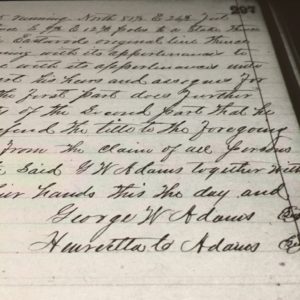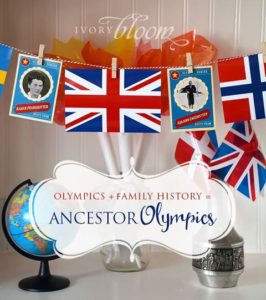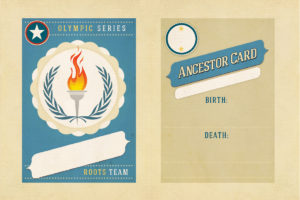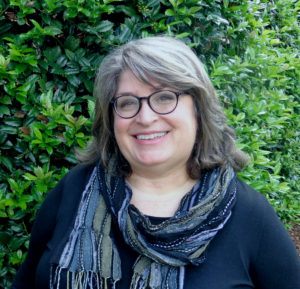 I headed to Salt Lake City this morning to attended RootsTech. I landed at 11:30 a.m., dropped my suitcase off at my hotel and made a bee-line for the Family History Library. I had a list of things to look up and I was raring to go.
I headed to Salt Lake City this morning to attended RootsTech. I landed at 11:30 a.m., dropped my suitcase off at my hotel and made a bee-line for the Family History Library. I had a list of things to look up and I was raring to go.
Just a few days ago, I had come across an index to deed books for Hopkins County, Kentucky, covering 1807-1939. Both the index and the deed books themselves are available at the Family History Library. But only the index has been digitized; the books themselves (with the exception of a couple) are available only on microfilm.
I was so happy to find the index right before, rather than right after, I was going to be in Salt Lake City! So today, I looked up the microfilm numbers, found the six rolls of microfilm (I didn’t realize I was supposed to limit myself to five at a time) and took up residence at the microfilm reader. At first, I was uncertain and slow. But by the third reel, I was a microfilm ninja!
At the Family History Library, in order to get a copy of the document you find on microfilm, you take the microfilm spool, along with the take-up reel, and carry them to a scanning machine. This way you’re saving your place on the film.
I was intimidated at the prospect of scanning from microfilm using unfamiliar software, but the staff member gave me a patient lesson (she used a pointer to point at the screen!) and after getting help just once, I was able to do it on my own the next eleven documents. It’s a little more complicated than it sounds because you have to zoom in and out, straighten pages and adjust the brightness. I felt so empowered!
I found some great stuff in those deed books and though I was a bit bleery eyed four hours later when I’d made it through all my lookups, it was well worth the effort. I’m grateful that I seldom have to use microfilm. Searching and browsing digital copies of documents and downloading with a single click is so much easier. But I always like it when I gain an appreciation for all the work that pre-internet genealogists went through.
It was a great start to my RootsTech week!



